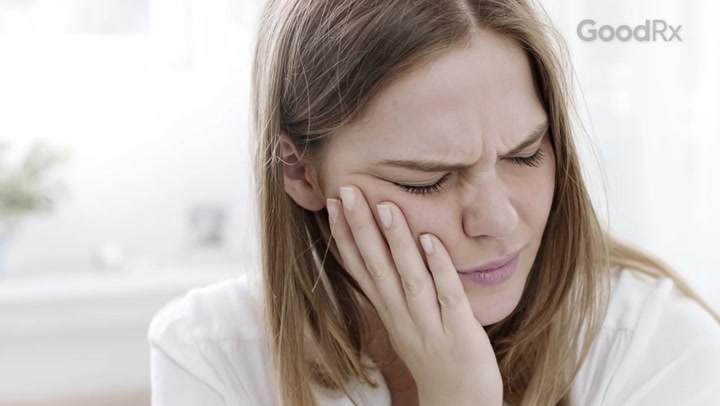
Is Decaf Coffee Good or Bad for You? Here’s What to Know
Key takeaways:
Decaf coffee contains many of the same substances found in regular coffee. But it has a lot less caffeine.
It can also have many of the same health benefits as regular coffee, including a reduced risk of diabetes, liver disease, and Alzheimer’s disease.
Decaf coffee can be a good option for people who want the flavor and health benefits of coffee but want to avoid the side effects of caffeine.
Table of contents
Coffee can have many health benefits in addition to giving you a boost in the morning. But some people prefer to avoid caffeine — even if they like the taste of coffee or how it may improve their health.
Decaffeinated coffee, commonly called decaf, has much less caffeine than regular coffee. But it has many of the same health benefits as regular coffee and is less likely to cause side effects.
Is decaf coffee good or bad for you?
Both caffeinated and decaf coffee have a range of health benefits. Decaf coffee is made from the same beans as regular coffee, but it has much less caffeine.
Discover a simple way to manage diabetes
Patients can use GoodRx to save up to 40% on OneTouch Ultra Strips.

Keep in mind that some coffee drinks include a lot more than just coffee. Added ingredients like sugar and creamers can turn plain black coffee into a high-sugar, high-fat drink. Luckily there are ways to spruce up your coffee without adding lots of sugar. From spices to herbs and extracts, you have plenty of options to mix it up.
Decaf coffee benefits
Decaf coffee can have many of the same health benefits as regular coffee. Coffee has many different substances in it — not just caffeine — that can positively affect health.
The amount of these other substances in both regular and decaf coffee can be affected by the type of coffee bean, how it’s roasted, and how the coffee is brewed. These other substances can also affect individuals differently, as everyone metabolizes them in different ways. This makes it difficult for scientists to study exactly how each substance may affect your health.
Here’s a closer look at the benefits of decaf coffee.
Supplies antioxidants
Many of coffee’s benefits are thanks to the high amount of antioxidants — molecules that help protect your body from oxidative stress and illness. Coffee beans lose some of their antioxidants during the roasting process. But roasting increases the levels of other antioxidants while also creating entirely new antioxidants as well. So, the coffee beans that you enjoy in a brewed cup are still rich in antioxidants.
Lowers overall risk of death
Research shows that people who drink coffee live longer than those who don’t drink coffee. This seems to be true for both caffeinated and decaf coffee. In a large study looking at coffee intake and the risk of death from various causes, both caffeinated and decaf coffee were associated with a lower risk of death.
Coffee on an empty stomach: Have you heard that drinking coffee on an empty stomach is bad for you? A dietitian reviews the evidence.
All about instant coffee: Here’s what you need to know about the health and safety of instant coffee.
How much caffeine is in your coffee? An 8-oz cup of brewed coffee can contain 95 mg to 165 mg of caffeine. Learn more about caffeine levels and how it affects your body.
Protects your liver
A strong body of research shows that coffee promotes liver health. These benefits aren’t just due to caffeine, so decaf drinkers benefit as well. Most of the benefits come from coffee’s anti-inflammatory and antioxidant effects.
Here’s how coffee benefits your liver:
Coffee lowers your risk of liver cancer and cirrhosis.
It helps maintain proper levels of liver enzymes and prevent fat buildup
Coffee protects against metabolic dysfunction-associated steatotic liver disease (formerly called non-alcoholic fatty liver disease) and lowers your risk of fibrosis
Read more like this
Explore these related articles, suggested for readers like you.
May lower the risk of Type 2 diabetes
People who drink coffee may have a lower risk of developing Type 2 diabetes, according to findings from three large studies. But this doesn’t necessarily mean coffee benefits people who already have diabetes.
Participants who drank 1 cup or more of coffee had a 10% lower risk of Type 2 diabetes. On the other hand, people who reduced their coffee intake by 1 cup or more had a 17% higher chance of developing diabetes.
More research is needed to better understand how caffeine may affect these findings. But the researchers didn’t see these benefits with caffeinated tea. This seems to suggest there’s something unique in coffee (besides caffeine).
May protect against Alzheimer’s disease
A 2021 study looked at 200 older adults who didn’t have Alzheimer’s disease or any other brain condition over a 10-year period. The researchers found that drinking coffee may provide some protection against Alzheimer’s. More specifically, drinking coffee lessened the amount of a protein that leads to Alzheimer’s disease. These protective effects seem to apply to decaf coffee as well.
Decaffeinated coffee side effects and risks
Decaf coffee can have some of the same risks as regular coffee. The amount of caffeine in decaf coffee is much lower than regular coffee. But some people who are very sensitive to caffeine may still experience some side effects, although this is rare.
More common risks or side effects from decaf include:
Worsening of heartburn or gastroesophageal reflux disease (GERD) symptoms
Some people may also be concerned about exposure to chemicals, such as methylene chloride, used during the decaffeination process.
The FDA regulates the decaffeination process in the U.S. This means that there are strict rules on how much solvent can be used, so your decaf coffee remains safe to drink. If you would prefer to avoid solvents altogether, there are also companies that only use water — with no solvents — to make decaf coffee.
Does decaf coffee have caffeine?
Decaf coffee has almost all of the caffeine removed, but it still contains a small amount — about 2 mg. That’s 97% less caffeine than regular coffee, which has about 95 mg of caffeine. While decaf coffee tastes like regular coffee, it has a lower risk of the caffeine-related side effects.
Normally, coffee beans start out green and become brown and flavorful after roasting. Decaf coffee is made from the same green coffee beans as caffeinated coffee. But the beans are first warmed and then, before roasting, soaked in water and solvents. Soaking the beans removes almost all of the caffeine.
Who should drink decaf coffee?
Some people like the flavor of regular coffee but don’t like some of its potential side effects, like feeling anxious, jittery, or having trouble sleeping. For those who don’t tolerate caffeine well, decaf coffee may be a better option. It can be especially helpful if you like to drink coffee later in the day or after dinner.
Research has shown that coffee consumption can be safe for people with a history of irregular heart rhythms. But those who worry that caffeine may cause palpitations may prefer decaf. Decaf coffee may also be a good alternative for people who want to limit caffeine intake for other reasons, such as pregnancy, religious beliefs, or personal preference.
Frequently asked questions
Both decaf and caffeinated coffee have health benefits. Caffeine does have some unique health benefits, such as reducing the risk of Parkinson’s disease, headaches, and kidney stones. But if you’re sensitive to caffeine, decaf may be a better option for you.
Yes, most people can safely drink decaf coffee every day. Many studies on coffee’s health benefits are based on drinking 2 to 3 cups of coffee per day. But it’s important to pay attention to how it affects you. If you aren’t sure, consider checking in with your primary care provider.
Caffeine is a stimulant and can make you feel jittery and anxious. Switching to decaf may help relieve these unwanted side effects while letting you continue to enjoy the taste of coffee.
The bottom line
Research shows that drinking coffee can positively affect your health in many ways. Decaf coffee has many of the same health benefits as regular coffee, but without the caffeine-related side effects. It can be a good option for people who like the flavor of coffee or want its health benefits but would like to avoid caffeine.
Why trust our experts?


References
American College of Cardiology. (2022). Studies find drinking two to three cups of coffee daily may benefit the heart.
American College of Obstetricians and Gynecologists. (2020). How much coffee can I drink while I’m pregnant?
Gardener, S. L., et al. (2021). Higher coffee consumption is associated with slower cognitive decline and less cerebral aβ-amyloid accumulation over 126 months: Data from the Australian imaging, biomarkers, and lifestyle study. Frontiers in Aging Neuroscience.
Gunter, M. J., et al. (2017). Coffee drinking and mortality in ten European countries - The EPIC study. Annals of Internal Medicine.
Kennedy, O. J., et al. (2021). All coffee types decrease the risk of adverse clinical outcomes in chronic liver disease: a UK Biobank study. BMC Public Health.
Kim, Y., et al. (2019). Coffee consumption and all-cause and cause-specific mortality: a meta-analysis by potential modifiers. European Journal of Epidemiology.
Kolb, H., et al. (2021). Coffee and lower risk of Type 2 diabetes: Arguments for a causal relationship. Nutrients.
Liao, Y., et al. (2022). A new approach for quantifying purpurogallin in brewed beverages using lc-ms in combination with solid phase extraction. Foods.
Liao, Y., et al. (2022). Effects of roasting degrees on phenolic compounds and antioxidant activity in coffee beans from different geographic origins. LWT.
National Coffee Association. (n.d.). Get the facts about decaffeinated coffee.
National Coffee Association. (n.d.). Lifecycle of coffee.
Nehlig, A. (2016). Effects of coffee/caffeine on brain health and disease: What should I tell my patients? Practical Neurology.
Socała, K., et al. (2020). Neuroprotective effects of coffee bioactive compounds: A review. International Journal of Molecular Sciences.
U.S. Food and Drug Administration. (2024). CFR - Code of Federal Regulations Title 21.
Wadhawan, M., et al. (2016). Coffee and liver disease. Journal of Clinical and Experimental Hepatology.





























